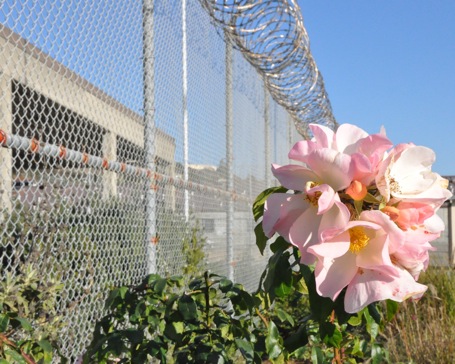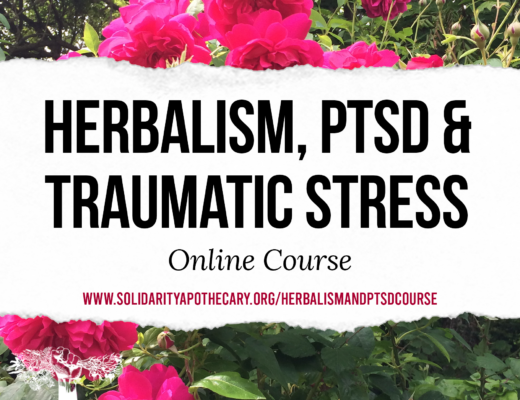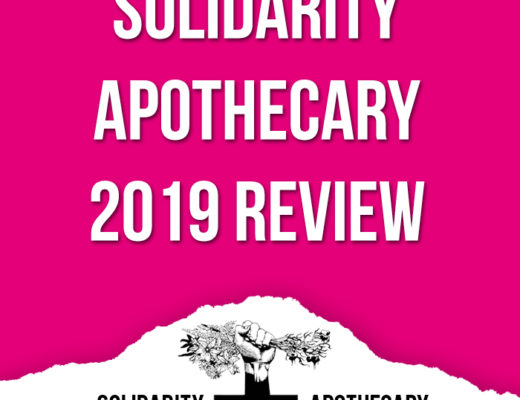This February, actually only a day or so after writing my last blog about herbs for anger and rage, the scales completely tipped on my mental health and the overwhelm I experienced triggered a bad mental health episode whereby I was debilitated by post traumatic stress. For the first time in 15 years, I had to take a step back from prisoner-support, leave my projects and be signed off sick from work as literally any mention of the word ‘prison’ spiralled me out of control into aggressive states of rage and anxiety.
I wrote this piece below in the midst of the breakdown as I battled with the grief of not knowing WTF to do when this movement has been my life. Thankfully, I’m now doing a lot better after two months of rest and some skilled support and mutual aid from two therapists and a small group of amazing friends. Yet still unable to organise, I ask the questions what will it take to heal? How does recovery relate to abolition? How do we support survivors of state violence recover and resist?
The original writing:
Shaped from the age of 16 when my first partner went to prison, I feel like prison has moulded my body. Because I was so young (21) when I went in, that somehow now prison is a part of me. That I’m trapped forever. That I will never be able to erase that experience so it will haunt me for the rest of my life. Which explains why I have been hell-bent on abolition because I am somehow trying to destroy my own memories, abolish my own past. The same way that we avenge people’s deaths like somehow the vengeance will heal our loss, our grief.
I have been hooked on revenge because I thought it would heal me, I thought it would stop the pain. And yes, my organising has been generative of huge amounts of solidarity, visible resistance and genuine outcomes for people’s survival and strength… but it only kept my demons at bay for as long as I had the strength to fight them. The strength to repress. The strength to silence the ghosts and the memories with workaholism. The ability to maintain a state of anger and rage, which propelled me for years and years.
But eventually, we become fatigued of war, fatigued of war with the state and its overwhelming violence. We become fatigued of war with ourselves, of the exhausting endurance we subject ourselves to. The performance of strength and the glamour that we are doing okay, it was a long time ago, I’ve had therapy etc.
And we dwell on those we have left there, still behind enemy lines and the responsibility weighs heavy on our chests. And the weight crushes any other dreams or desires as we cannot move on because our hearts are looking back for those we love who remain imprisoned. And every phone call from a friend inside takes me back to that place. The smell of the tobacco on the phone piece, the barks of screws, the scared skin and the rooms with no air and no keys. And every visit, I re-enter the prison and go through the same rituals of repression, when all I want to do is rip the throat out of the officer searching me, while I am forced to wait and obey in order to keep seeing those that I love.
And every re-experiencing of that place numbs my heart because to feel it all would shatter it. For years, I would lie next to a lover, unable to feel their lips on my skin, so beyond my body that unless they wielded some force upon me, I could not feel anything at all. Because to feel love is to feel pain, to feel loss, to feel captivity, to feel enclosing walls, to feel deeply unsafe. If you are lucky enough to know a sense of safety before prison, then you can at least grieve the feeling because stepping inside those walls evaporates whatever you thought you knew about safety in your body. Hyper-vigilance becomes you. It holds your skeleton up.
The only way to not go mad is to leave your body behind. Yet this creates its own form of insanity, where you can no longer exist in a world that requires you to ‘know your body’. So separate from its flesh, you can no longer feel its hunger, its tiredness, its cues that its asking you to slow down, to rest. And so on release, you don’t need officers to control you or target you, you are now completely capable of destroying yourself, of wrecking your body with drugs and alcohol, or through an addiction to war and revenge.

Image from: https://www.pinterest.co.uk/pin/323274079474839309/?lp=true
‘Destroy what destroys you’. The abolition of prisons becomes a fight to abolish your own trauma, yet you are like a fox caught in a trap. The more you move the more flesh you rip and the more you bleed. The more I engaged in abolition, the more that my life became dominated by prison, the more I gave power to those memories. Verbalising the pain brought it all to life again. Like I had conjured the ghosts once more.
“The abolition of prisons becomes a fight to abolish your own trauma.”
So now I am trapped between struggles to erase and struggles to embrace. The desire to walk away from it all is huge as if the only freedom comes with a lock and a key to that part of my psyche. Yet the abandonment of my friends feels too unbearable to accept. Knowing the pain of abandonment in prison, doing that to them seems beyond comprehension.
And so now the task is to find a way beyond abandonment and repression that will enable me to put my ghosts to rest, be there for my friends and be part of a movement to abolish prisons. Is this the healing justice I have always sought? What could that look like in our movements?

We want ex-prisoners and prisoners to lead this struggle yet without recognition of trauma recovery, we may as well be leading them to the slaughter. So is my next state of abolition less about war and more about healing? What collective resources can we leverage to support our loved ones in recovery from prison? For me, it’s plant medicines, yet there are many tools in the toolbox and the time is now to support each other to heal our wounds. To find healing in ways that do not involve re-imprisonment or yet even more state violence (such as being sectioned to a psychiatric hospital). To find healing in ways that build mutual aid, reconnection and relationship. To recognise that abolition is as much about trauma recovery as it is about resistance. That reclaiming life from trauma is resistance. That recovery must be a politicised act and a collective endeavour.
“To recognise that abolition is as much about trauma recovery as it is about resistance.”
Prison dehumanises you so brutally. It becomes you against the world and so loneliness is the default, not only in surviving your sentence but in navigating recovery. I do not want to be alone anymore in this. I don’t want to drop out of a movement in order to reclaim some sanity from this PTSD. I want to feel loved and supported and held by comrades. Prison makes you disappear, it destroys your relationships. I don’t want to lose all the family and friendships I have built through engaging in abolition organising. I don’t want to disappear because I don’t have the capacity to organise right now. So I return to the question, what will it take to heal? And where do we start?



